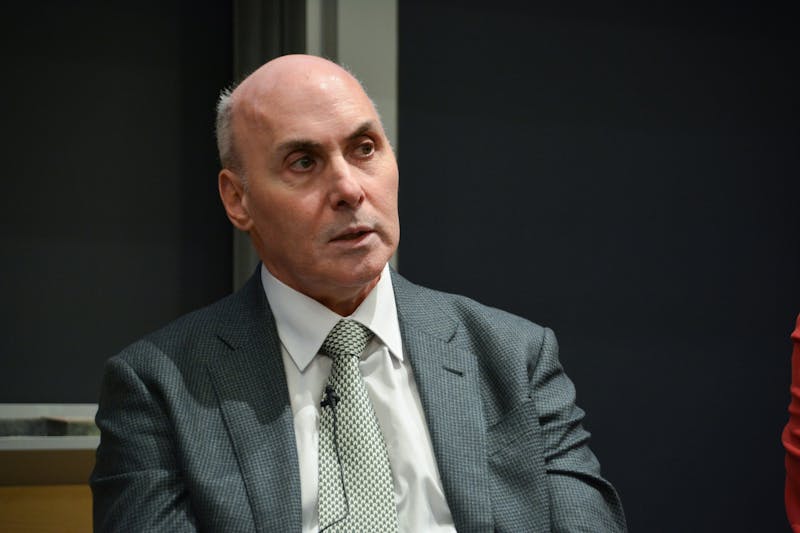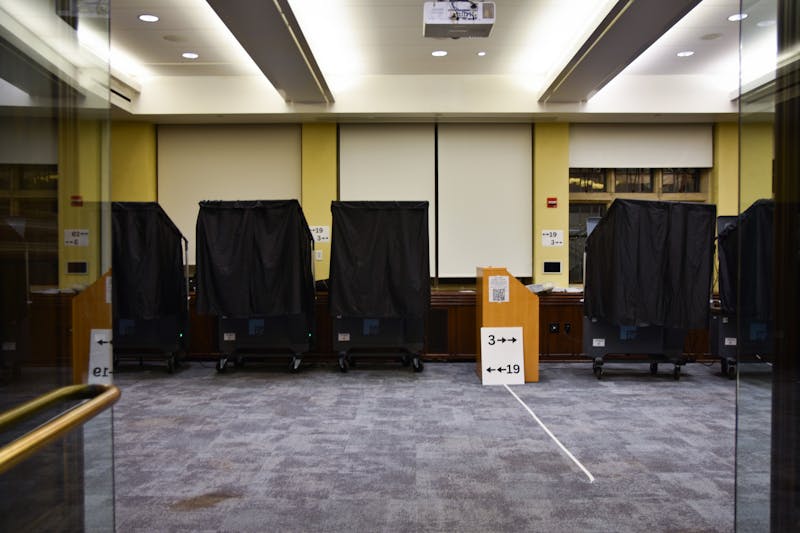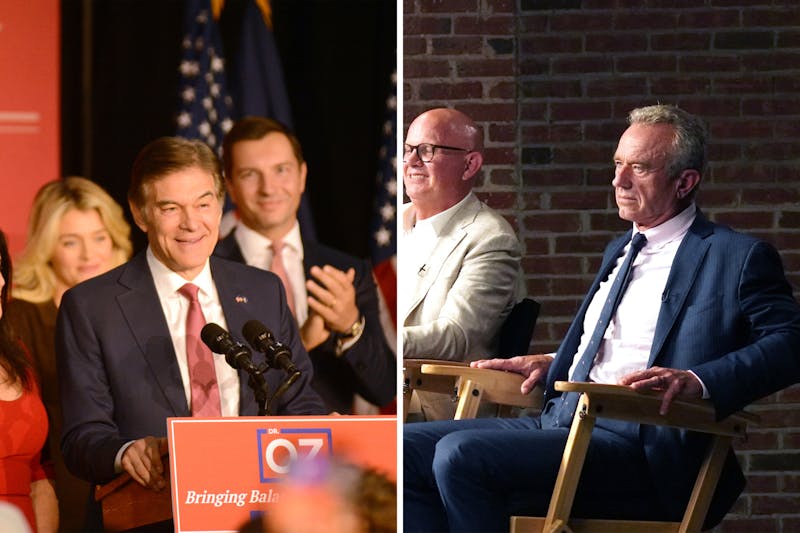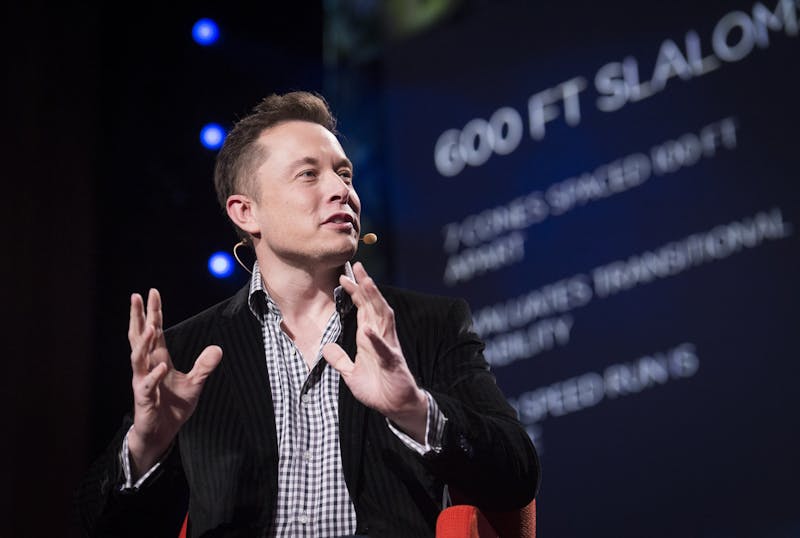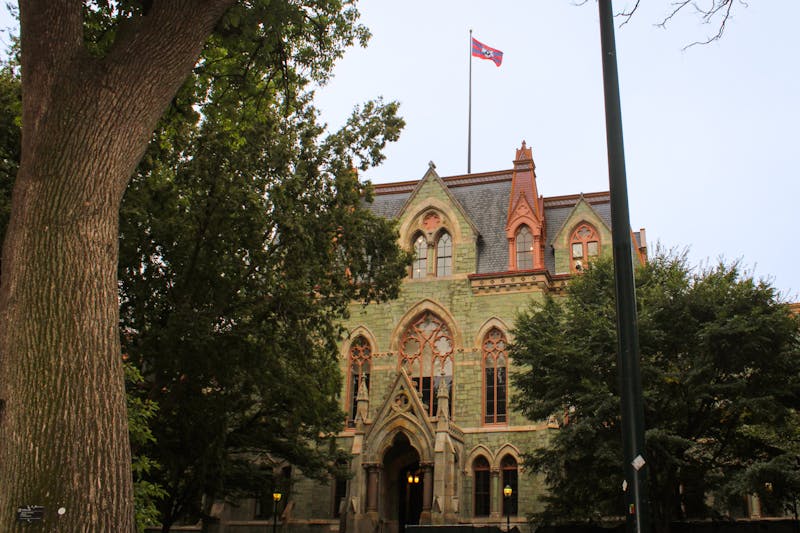
1968 Wharton graduate and President-elect Donald Trump in the spin room after the second presidential debate.
Credit: Jean ParkPenn professors discussed potential environmental policy changes ahead of President-elect and 1968 Wharton graduate Donald Trump's second term in interviews with The Daily Pennsylvanian.
Trump will assume office on Jan. 20, in a Republican-dominated federal government. In his first term, Trump sought to roll back regulations on oil and gas companies, defund environmental federal agencies, and cut back various federal environmental protection laws.
Carey Law School professor Shelley Welton looked to Trump’s first term as an indicator of his agenda over the next four years.
“I think it’s a really challenging moment for those of us focused on climate change and environment to recalibrate and rethink our research agendas,” Welton said in an interview with the DP.
Between 2016 and 2020, Trump cut back federal laws such as the National Environmental Policy Act, the Endangered Species Act, the Clean Water Act, and the Clean Air Act.
Now, with three Trump-appointed Supreme Court justices currently serving on the court, Welton predicts that the court will be “quite helpful” in endorsing Trump’s agenda in terms of those statutes.
Welton foresees some clean energy progress but with less direct aid from federal agencies and a “renewed focus” on the oil and gas industries.
“You’re not going to see the same full-throated government embrace of a clean energy transition that you saw under the Biden administration,” Welton said.
Following a slowed clean energy transition, federal agencies such as the Environmental Protection Agency, the Department of Energy, the National Oceanic and Atmospheric Administration, and NASA may be at risk for budget cuts.
According to Welton, the proposed Department of Government Efficiency, a presidential advisory commission, plans to cut agency budgets, with environmental agencies likely next in line. Welton similarly predicts attempts by Congress will chip away at the Inflation Reduction Act, which includes clean energy, manufacturing, and production tax credits.
Political Science professor Parrish Bergquist also believes that Trump’s planned tax cuts will require “finding savings in the budget,” and environmental efforts made in the Biden administration could potentially be at risk.
Trump’s nominees to lead the Department of Energy and the Environmental Protection Agency indicate plans to “roll back regulations” on the oil and gas industry and “disfavors clean energy technologies,” Bergquist said.
“Cutting funding for [agencies] like NOAA and NASA is something that I’m really worried about,” Bergquist said. “A lot of that research is in-house, but some of it is collaborative with university-based researchers.”
Bergquist, who along with Kleinman Center for Energy Policy Faculty Director Sanya Carley, received a grant from the DOE to fund their research efforts questions whether or not they will still receive the full funding granted to them — and doesn’t foresee future authorization of energy research funding by the Trump administration.
Biology Department chair and professor Kimberly Gallagher offered a contrasting opinion. Since Congress tends to “buffer requests” for large increases or cuts to federal research spending, the presidential budget request “has historically had little impact on the amount of money that Congress approves,” she said.
In a statement to the DP, Gallagher wrote that she was most familiar with agencies such as the National Science Foundation and the National Institute of Health, which are more broadly science-focused.
While Welton’s policy-focused research doesn’t rely on federal funding, her research agenda will still be significantly altered by the next presidential administration.
The next four years will likely bring up a new crop of legal questions, including how to create durable climate change law amidst “dramatically vacillating administrations” and what role the states play at this stage in the clean energy transition, Welton said.
“Some questions that I put aside during the last four years I will [now] pick up,” Welton said. “And I’m still wrapping my head around what’s the right set of questions to ask about climate law and policy under this administration.”
“I do think it’s a real moment for researchers to step back and ask, not so much on the hard science side, but on the social science side, what should we take away from the political moment we’re in?” Welton added.
The Daily Pennsylvanian is an independent, student-run newspaper. Please consider making a donation to support the coverage that shapes the University. Your generosity ensures a future of strong journalism at Penn.
Donate







